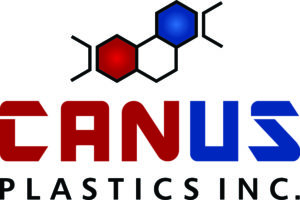ABS or Acrylonitrile Butadiene Styrene is a thermoplastic polymer plastic created by polymerizing styrene (40 to 60%) and acrylonitrile (15 to 35%) in the presence of polybutadiene (5 to 30%). Modifying these ratios will drastically alter the properties of this common plastic.
ABS is an ideal material wherever superlative surface quality, colorfastness and luster are required. The ratios of polymers can be used to create high and medium grade resistance to heat and impact. Additives can further increase its fire retardant properties as well as its color and transparency. Another valued aspect of ABS is that it can be electro-plateable which can be used to give it a metallic finish.
ABS is damaged by sunlight and in such applications additives to increase UV resistance should be considered.
ABS products at CANUS, such as Royalite®, are commonly produced by way of:
- Injection Moulding
- ThermoForming
- Vacuum Forming
- CNC Machining
- General Machining
- Welding
- Adhesives
Common applications of this plastic include pipe, automotive components, electrical enclosures, panels, luggage, toys, computer housings and kitchen appliances. ABS powders are also used more frequently now in rapid prototyping via extrusion-based 3D printers.

